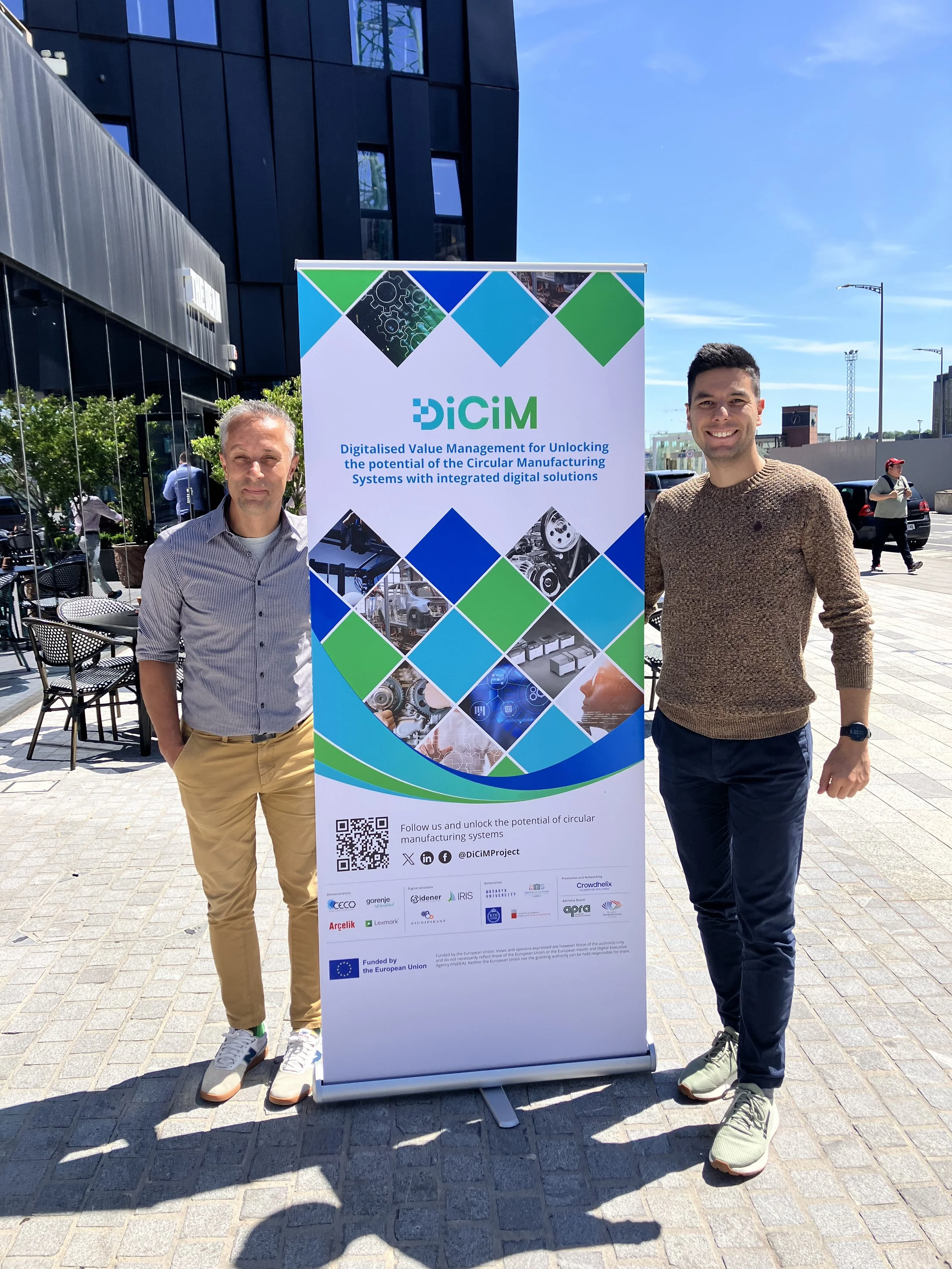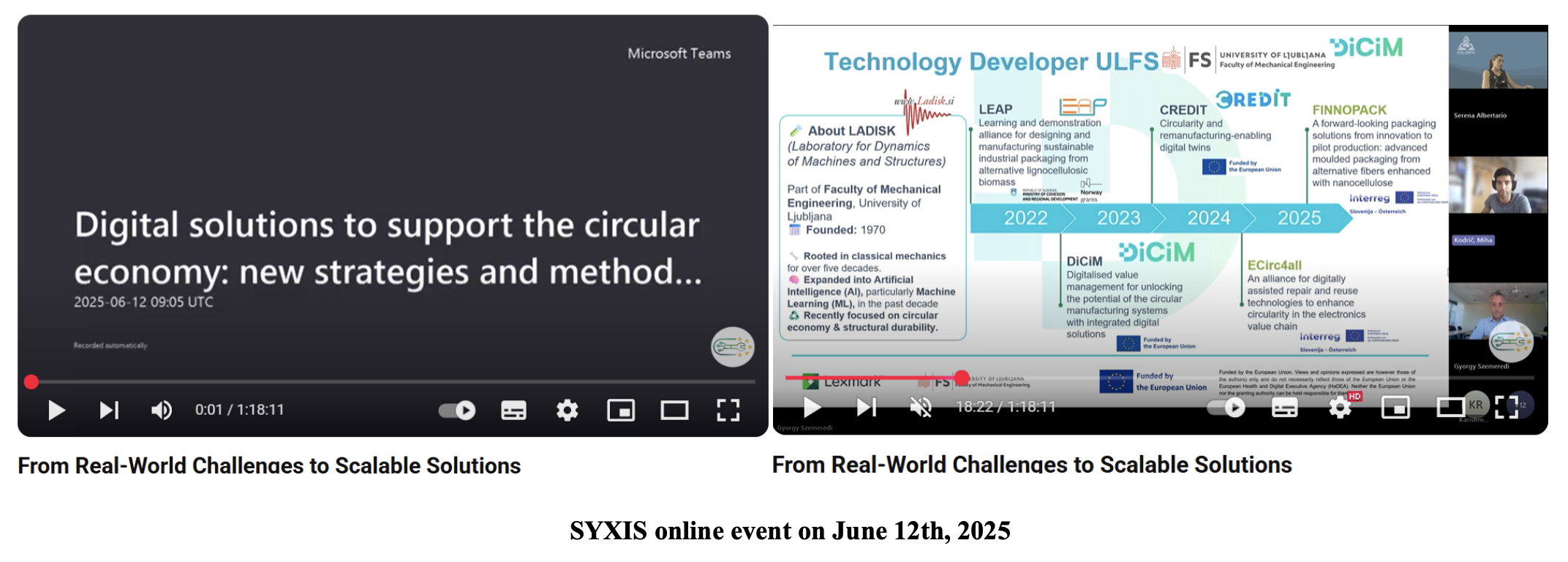Lexmark is Advancing the Circular Economy through AI-Driven Digital Innovation
What if we merged two of today’s defining forces in business strategy and value, Artificial Intelligence (AI) and Sustainability? What if AI was already being used to advance the circular economy and reduce the carbon footprint? What if Lexmark was already doing exactly this – as part of the EU-funded DiCiM (Digitalised Value Management for Circular Manufacturing Systems) project, of which it is the exclusive partner for the print industry.
Lexmark’s use case within the DiCiM project was recognized as the most advanced technology concept during the 4th General Assembly meeting held in Cork, Ireland, in May 2025, for contributing meaningful AI, IoT and Machine-Learning (ML) derived data and information to the DiCiM project – in order to take remanufacturing to the next level. This recognition highlights the significant progress and innovation achieved by Lexmark in close collaboration with the University of Ljubljana, the Faculty of Mechanical Engineering (ULFS), and Signifikant. It also reinforces Lexmark’s broader leadership in sustainability, as we are uniquely positioned as the only printer manufacturer participating in EU-funded circular economy projects.
Lexmark project managers György Szemerédi and János Bátyai at 4th General Assembly meeting held in Cork, Ireland, May 2025
As a result, Lexmark was invited to represent the DiCiM consortium alongside ULFS at an online clustering event coordinated by SYXIS on June 12th, 2025. During this session, Lexmark presented its advancements alongside other EU-funded projects, including AUTO-TWIN, DaCapo, and RESTORE.
The DiCiM project, which began in 2023 and is scheduled to conclude in 2026, focuses on developing an AI-supported circular economy model for Lexmark printing devices. This model marks a significant evolution from the company’s previous manual circular approach. The new system integrates artificial intelligence, machine learning, and IoT technologies to enable remote condition monitoring, predictive maintenance, and optimized reverse logistics.
A central element of this transformation is the Open Access Digital Platform (OADP), which collects and analyzes device data to support decisions on repair, reuse, and remanufacturing. For example, the system can flag printers with low page counts and minimal wear for reuse instead of recycling, ensuring resources stay in use longer. To support this, status data extracted from Lexmark’s integrated systems for MS823dn printers was used for programming AI/ML algorithms that assist in End-of-Life (EOL) decision-making. By 2026, the AI-driven model is projected to manage significantly more devices with a substantial reduction in carbon footprint.)
The Faculty of Mechanical Engineering at ULFS has played a key role in developing machine learning algorithms that analyze sensor data from over 12,000 printers which amounted to 750 GB of data. These algorithms detect anomalies in component behavior, serving as early indicators of wear or failure. The insights generated are used to assess overall machine health and inform maintenance strategies.
Lexmark complements this system with a device return process that enables users to return used products for assessment. Devices with remaining value are remanufactured or harvested for reusable parts, while others are responsibly recycled. AI, IoT and ML algorithms support this by evaluating the condition of returned products to make appropriate end-of-life decisions.
To enhance usability and integration, a five-stage component health grading system and an interactive 3D visualization tool have been developed. These tools provide intuitive access to device condition data and are supported by a standardized API for integration with external platforms.
Lexmark and ULFS have delivered a strong solution within the DiCiM project that aligns with EU sustainability goals and demonstrates the potential of digital technologies to drive circular manufacturing. This work positions Lexmark as a key contributor to the EU’s circular economy agenda.
CTA: Visit the DiCiM website and follow DiCiM on LinkedIn for the latest updates.
For specific questions, feel free to contact Lexmark project managers György Szemerédi and János Bátyai.


